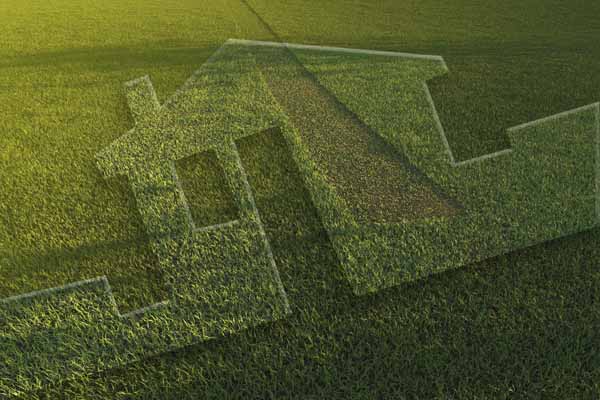Vero Beach home selling tips are a valuable commodity. Knowing what will help sell your home faster and for the best price gives you a distinct advantage over sellers who don't pay attention to market indicators. Sellers who allow themselves to get caught up in the emotional value of their homes while ignoring the real value based on recent comparable sales are likely not to sell as quickly – if at all.
In today's environmentally-conscious society, one of the more popular topics among home sellers is how their home's "green" features affect their ability to sell. Let's take a look at some of the pros and cons.
Vero Beach Home Selling – Will Green Make More Green?
Regardless of whether they are active environmentalists, a greater number of home buyers are familiar with and appreciate energy efficient homes. They've read about Energy Star-rated appliances, LEED certification and sustainable homes. They've heard about solar panels, home geothermal systems and smart home technology.
Builders of homes with energy efficient features in the Vero Beach home selling market usually go to great lengths to make their prospects aware of what green homes offer. Simply put, they've invested a large amount of money installing the features in hopes of recouping their costs when they sell. However, the big questions are, "Do most buyers really care?" "Will they pay a higher sales price for green features?" "Does 'going green' help sell a home?" The answer – as is the case with most subjective topics – is, it depends.
Features, fixtures and finishes are fickle.
Home buyers are attracted to and are likely to pay more for features they can actually touch and feel. Tangible features that increase the home owning experience may include extras like a spa-like or whirlpool bath tub, a media room, a chef's kitchen, or an exercise room. They are less likely to pay more for improvements to the home they can't see like the roof, new plumbing, new electrical, or a new heating and air conditioning system.
Energy efficient homes with green features rank somewhere in the middle of the tangibles versus intangibles. Younger buyers may be more attracted to the "hip factor" provided by rooftop solar panels or energy saving smart home technology that can be controlled from their smartphone or tablet. Often the hip factor is enough for a home buyer to pay more, but not always.
So, what about my wallet?
Chances are, environmentally friendly features won't motivate a buyer enough to pay more than a home is worth. However, if a green home includes money-saving features from which the buyer may benefit, his interest may be piqued.
In the Vero Beach home selling market, it's even more difficult for sellers to recoup the costs they paid for solar panels, a high-tech thermostat or other energy efficient features. While the expense to buy and install the green features are usually included in the home's sales price, it's less likely the sellers will recover the costs, dollar-for-dollar. A remodeled kitchen with new appliances stands a better chance of producing a return on the seller's time, money and effort.
New construction: to green or not to green?
When it comes to new home construction, home buyers are the ones that ultimately decide the cost versus benefit. For example, a successful single family home builder in New York recently built a variety of similarly sized homes to sell. They were able to sell many of the homes on the strength of the floor plans and other features, then added custom-built features based on each buyer's individual needs and tastes.
The home builder gave buyers the option of installing a complete home geothermal heating and cooling system. While the cost was roughly $50,000 extra, the buyers were given an immediate $30,000 federal government tax credit. In addition, the cost of the system was already built into the mortgage, requiring no additional outlay of cash by the buyer.
The program was set up whereby the buyers would realize the savings through lower energy bills of several hundred dollars a month. It was projected to pay for itself in roughly five years. As attractive as the prospect of recouping their investment in just five years was, only half the buyers chose the system. The other half just didn't want it or feel the need to "pay" for it.
So why are some home buyers more interested in green features and their benefits than others? It all boils down to two factors: personal preference and financial wherewithal. If a buyer doesn't plan to stay in a home longer than a few years, they're less likely to have time to benefit from the additional cost. In addition, when they're ready to enter the Vero Beach home selling arena their future buyer probably won't be motivated to pay more – especially if the market has become depressed. Therefore, home buyers who plan to own the home for a longer time period, or those with a personal commitment to protecting the environment are definitely the target audience.
The market's small, but growing.
There is a small but increasing segment of today's home buying market that's genuinely concerned about the environment. These people want sustainable homes. They want to contribute to improving our surroundings and saving energy. They are less concerned about the costs of green home features. They will pay more for those features – regardless of the hip factor. The cost savings they enjoy is a plus, but it's not the most important issue in their decision-making process.
One thing's for sure: green features and energy efficiency is here to stay. More consumers will see them and learn about them in the Vero Beach home selling market. So, it may not be a big consideration for buyers or sellers today, but that will change in the near future.
See more articles pertaining to Vero Beach home selling in the Vero Beach Home Selling Tips section of our site below Vero Beach Real Estate Categories in the column to your right.
Remember, we also post tips daily on Twitter and Facebook. Check us out there too.


